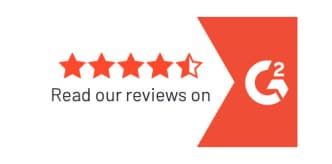As a small business owner or HR professional, you might be hesitant to offer a 401(k) plan to your employees due to the costs involved. However, research shows that offering a 401(k) plan can save employers money in the long run. In this article, we’ll explore the ways in which offering a 401(k) can benefit both employers and employees.
Tax Benefits for Employers
When an employer contributes to their employees’ 401(k) accounts, they can deduct the contributions as a business expense on their tax returns. This reduces the amount of taxable income for the business, resulting in significant tax savings.
In addition, if the employer is a small business, they may be eligible for tax credits for starting a new 401(k) plan. These tax benefits can help offset the costs of offering a 401(k) plan and make it more affordable for the business.
Attract and Retain Top Talent
Offering a 401(k) plan can make a business more attractive to potential hires, particularly those who are looking for long-term career prospects. Employees consider retirement benefits to be a significant factor in their employment decisions, and a competitive 401(k) plan can help a business stand out from its competitors.
In addition, offering a 401(k) plan can help reduce employee turnover, as employees are more likely to stay with a company that offers competitive retirement benefits, and more likely to leave one that doesn’t.
Reduce Payroll Taxes
When employees contribute to their 401(k) accounts, their taxable income is reduced, which means that the employer must pay less in payroll taxes. This can result in significant savings for businesses, particularly for those with high-earning employees. For example, if an employee earns $100,000 per year and contributes $10,000 to their 401(k) account, the employer only has to pay payroll taxes on $90,000 of the employee’s income.
Increase Employee Productivity
Employees who have a secure retirement plan are likely to be more focused and less stressed about their financial future. This can result in higher levels of engagement and productivity in the workplace, which can ultimately benefit the employer. Offering a 401(k) plan can help boost employee morale, as employees feel valued and appreciated by their employer.
Lower Healthcare Costs
Research has shown that employees who participate in a 401(k) plan tend to be healthier and require fewer medical interventions. One reason is that employees who have a 401(k) plan are more likely to take care of their health, as they have a long-term financial goal of retirement.
Another is that workers that have their finances in order experience lower amounts of stress and anxiety. This can result in lower healthcare costs for employers, which can be a significant cost savings.
Share Costs with Employees
Unlike a pension or other defined benefit (DB) plan, when employees contribute to their 401(k) accounts, they are taking on some of the financial responsibility for their retirement. This means that employers can share the cost of retirement benefits with their employees, which can be a significant cost savings over time. Employees who contribute to their 401(k) accounts are more likely to stay with the company long-term, which can help reduce recruitment and training costs for the employer.
401GO Makes it Even Easier
Modern fintech providers have taken enormous steps to reduce up front costs for small businesses. Not only is pricing affordable and transparent, but the built-in automation and service bundling create significant improvements in efficiency compared to older, legacy solutions. This means you won’t need substantial inputs of time or money in order to offer a high-quality benefit to your employees.
And, while there are costs associated with offering a 401(k) plan, the benefits can far outweigh these costs over time.



